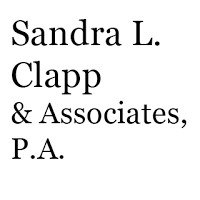Best Nonprofit & Charitable Organizations Lawyers in Eagle
Share your needs with us, get contacted by law firms.
Free. Takes 2 min.
List of the best lawyers in Eagle, United States
About Nonprofit & Charitable Organizations Law in Eagle, United States
Nonprofit and charitable organizations play a crucial role in the social and economic fabric of Eagle, United States, by addressing community needs, advancing education, promoting culture, and more. In Eagle, these organizations operate under a variety of legal frameworks designed to formalize their status and operations, ensure accountability, and provide tax exemptions. These laws touch on how nonprofits are formed, governed, and can fundraise, ensuring they serve public rather than private interests.
Why You May Need a Lawyer
Many situations may arise where legal advice is necessary for those involved with nonprofit and charitable organizations. These include:
- Establishing a new nonprofit: Understanding the legal requirements for incorporation, bylaws, and tax-exempt status.
- Tax compliance: Navigating IRS requirements for maintaining tax-exempt status and handling possibilities of tax audits.
- Employment law: Addressing staffing issues, from volunteer agreements to employee disputes and benefits.
- Contractual matters: Reviewing and drafting contracts with donors, service providers, and grant-makers.
- Governance issues: Advising on board responsibilities and fiduciary duties.
- Regulatory compliance: Ensuring compliance with state-specific fundraising laws and reporting requirements.
Local Laws Overview
Eagle adheres to both federal standards and specific local/state laws governing the operation of nonprofits. Key considerations include:
- Registration and Incorporation: Nonprofits must be registered as a corporation within the state and face specific rules regarding organizational structure and management.
- Tax-Exempt Status: Nonprofits must apply separately for federal and state tax exemptions, ensuring compliance with specific filing requirements.
- Charitable Solicitation: Organizations engaging in public fundraising must register with the state's Attorney General's Office and adhere to strict solicitation laws and regulations.
- Annual Reporting: Nonprofits are required to file annual reports that provide transparency about financials and activities.
- Lobbying and Political Activities: Defined limits are placed on the extent of political lobbying activity a nonprofit can engage in without risking its tax-exempt status.
Frequently Asked Questions
1. What is the first step to starting a nonprofit in Eagle?
The first step is to define your mission and structure, and then incorporate as a nonprofit corporation with the state.
2. How can a nonprofit maintain its tax-exempt status?
The organization must comply with IRS regulations, including annual filings, adhering strictly to its mission, and abstaining from undue private gain.
3. Are there specific reporting requirements for nonprofits in Eagle?
Yes, they must file annual financial reports with both the state and the federal government through forms like the IRS Form 990.
4. Can a nonprofit engage in political activities?
Nonprofits can engage in some lobbying but are prohibited from endorsing political candidates without risking their tax-exempt status.
5. What are the recordkeeping requirements for nonprofits?
Nonprofits need to maintain records of their income, spending, meeting minutes, and other operational documentation.
6. Is there a specific legal structure required for the board of a nonprofit?
State laws dictate minimal board composition requirements that nonprofit boards must follow, usually involving a certain number of board members.
7. What should be included in a nonprofit's bylaws?
Bylaws generally outline the organizational structure, governance policies, meeting protocols, and the roles and responsibilities of board and staff members.
8. Are there any restrictions on naming a nonprofit?
The name chosen for a nonprofit must be unique and not imply connections to governmental bodies or violate trademarks.
9. How are nonprofits regulated on the state level?
State regulations often involve the Secretary of State's office and the Attorney General, focusing on corporate registration and fundraising compliance.
10. What liabilities do nonprofit board members have?
Board members have fiduciary duties such as care, loyalty, and obedience, and can be held accountable for gross negligence or willful misconduct.
Additional Resources
For further assistance, consider reaching out to the following resources:
- The National Council of Nonprofits
- The Eagle Office of the Attorney General - Charitable Organizations Division
- The Internal Revenue Service (IRS) - Exempt Organizations
- Local law libraries and bar associations
Next Steps
If you require legal advice specific to nonprofit and charitable organizations, consider the following steps:
- Identify your legal needs: Clearly define what specific area or issue you need assistance with.
- Consult with an attorney: Look for lawyers specialized in nonprofit law through your local bar association or referrals.
- Prepare documentation: Gather all relevant documents, such as incorporation papers, bylaws, previous tax filings, and any correspondence with regulatory bodies.
- Schedule a consultation: Discuss your needs and the potential scope of legal services required.
Lawzana helps you find the best lawyers and law firms in Eagle through a curated and pre-screened list of qualified legal professionals. Our platform offers rankings and detailed profiles of attorneys and law firms, allowing you to compare based on practice areas, including Nonprofit & Charitable Organizations, experience, and client feedback.
Each profile includes a description of the firm's areas of practice, client reviews, team members and partners, year of establishment, spoken languages, office locations, contact information, social media presence, and any published articles or resources. Most firms on our platform speak English and are experienced in both local and international legal matters.
Get a quote from top-rated law firms in Eagle, United States — quickly, securely, and without unnecessary hassle.
Disclaimer:
The information provided on this page is for general informational purposes only and does not constitute legal advice. While we strive to ensure the accuracy and relevance of the content, legal information may change over time, and interpretations of the law can vary. You should always consult with a qualified legal professional for advice specific to your situation.
We disclaim all liability for actions taken or not taken based on the content of this page. If you believe any information is incorrect or outdated, please contact us, and we will review and update it where appropriate.








